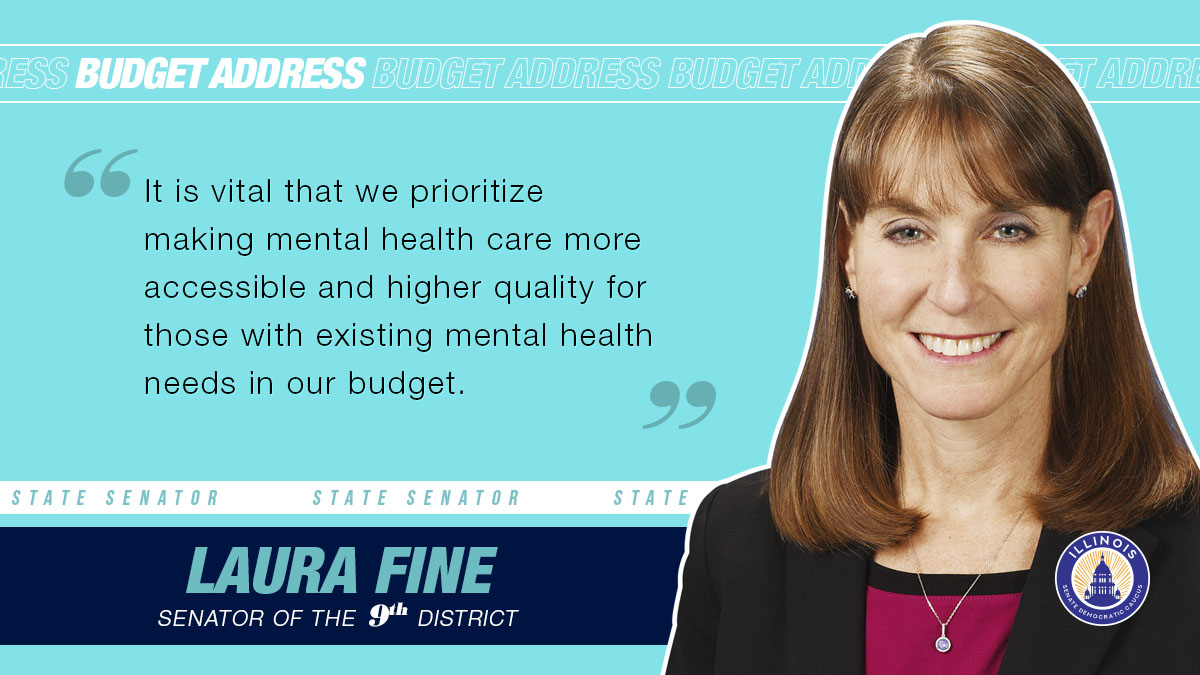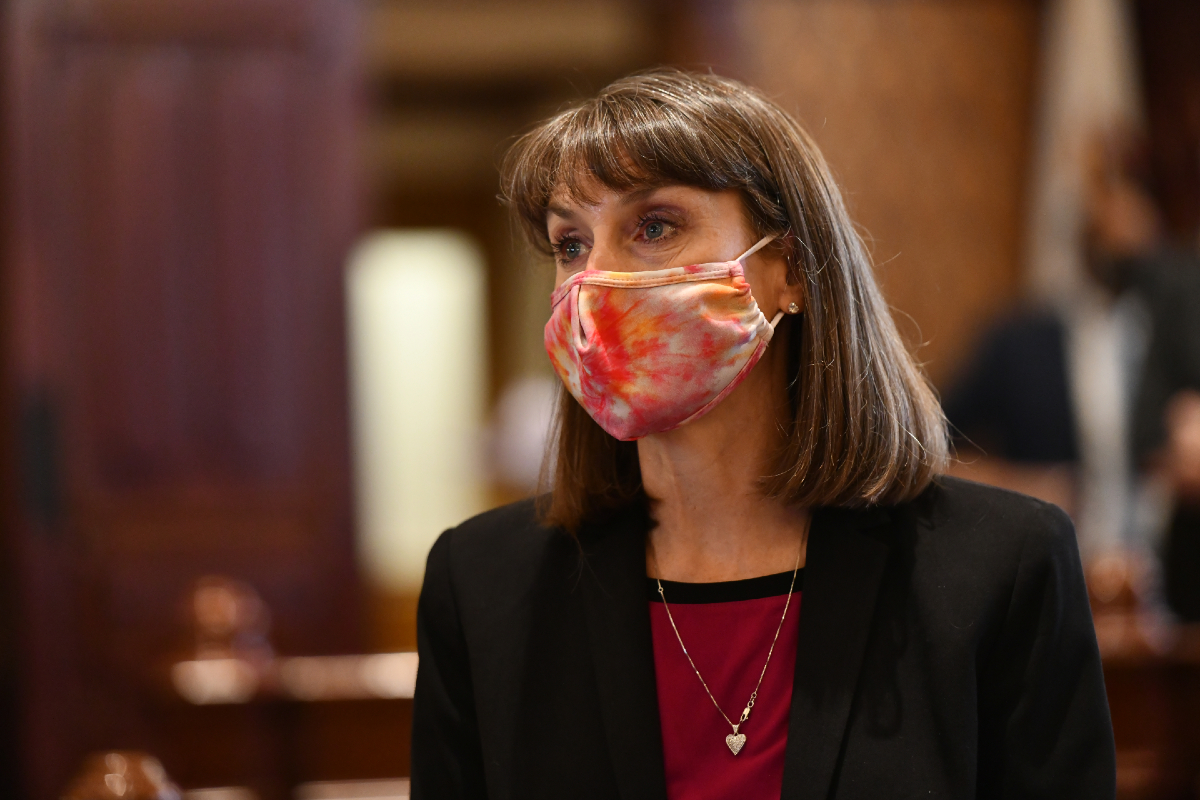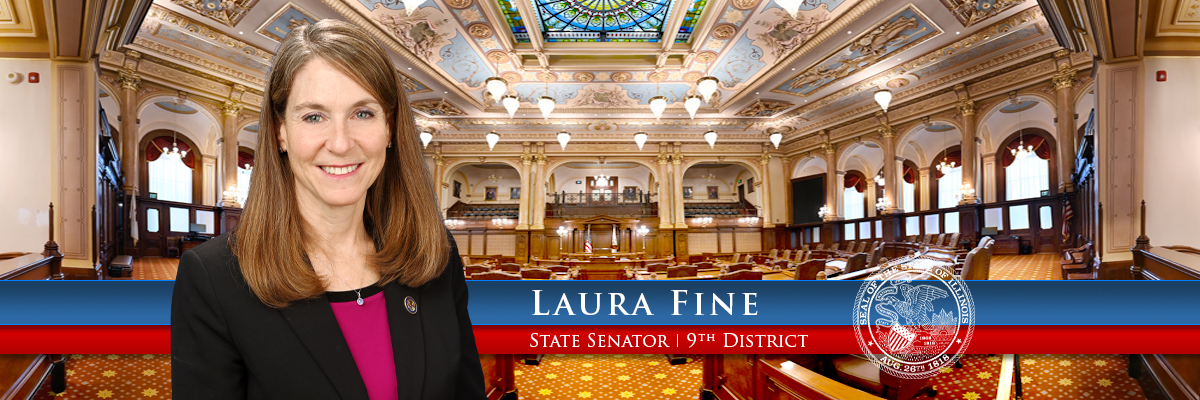- Details
- Category: Press Releases
SPRINGFIELD – State Senator Laura Fine (D-Glenview) is leading a measure aimed at growing the mental health professional workforce in Illinois, as the current workforce is struggling to keep up with increasing demand.
“The shortage of behavioral health care professionals is a huge roadblock for people seeking quality mental health care,” said Sen. Fine. “I am committed to addressing this pressing issue to ensure people have access to the best mental health care possible, and that providers are supported during these unprecedented times.”
In Illinois, there are only 14 behavioral health care professionals for every 10,000 Illinois residents. Many people are forced to wait longer for essential treatment or forego health care entirely because of this gap. This can be detrimental to their mental and physical well-being.
To address these issues, SB 3617 focuses on expanding the current workforce. It will accelerate the process for out of state clinicians applying for licensure in Illinois, as well as suspending requirements for social workers, professional counselors, and clinical psychologists with licenses that have been inactive for five years. Additionally, it includes initiatives to support diversity in the mental health field, establishing tax credits, and many more provisions, all of which will encourage more quality, accessible care to those seeking assistance.
“It takes bravery to reach out to get treatment for a mental or behavioral health condition,” Fine said. “I hope that this measure will not only reduce the gap between available providers and patients, but also encourage people to find the provider that is the best fit for their mental health needs.”
Senate Bill 3617 passed the Behavioral and Mental Health committee Tuesday. It now goes to the Senate floor for debate.
- Details
- Category: Press Releases
SPRINGFIELD –Care will be more tailored to the needs of patients with Alzheimer's disease or dementia thanks to a new initiative sponsored by Senator Laura Fine (D-Glenview) in conjunction with the Alzheimer's association.
“Currently, caregivers are not required to be trained on how to care for patients with dementia or Alzheimer’s,” Fine said. “This needs to change so that people living with these conditions will have access to best care possible to address their specific needs.”
Over 230,000 people in Illinois are living with Alzheimer’s. Many take part in the Community Care Program, which allows seniors with or without these conditions to receive in-home and community-based service from their own homes. Employees that provide this service are currently required to complete 12 to 24 hours of training, but training specific to dementia and Alzheimer’s patients is optional.
Fine’s measure would require employees and contractors with the Department of Aging Service who provide direct service to individuals in the Community Care program to complete at least two hours of training on Alzheimer’s and dementia prior to the start of their employment. Fine believes that condition-specific training is essential to ensuring adults living with these conditions are able to be cared for and better understood.
“Many types of care for people with Alzheimer’s or dementia are simply not covered in generalized training,” Fine said. “I am hopeful that this measure will provide training that explores medical and sensitivity issues related to dementia and Alzheimer’s patients to give them the quality care that they deserve.”
Senate Bill 3707 passed the Healthcare Access and Availability committee today. It now goes to the Senate floor for further deliberation.
- Details
- Category: Press Releases

SPRINGFIELD – Following Gov. JB Pritzker’s budget address, State Senator Laura Fine (D-Glenview) is optimistic that the state will increase its investment for essential mental health care.
“In these unprecedented times, many are facing new or worsening mental health concerns,” Senator Fine said. “It is vital that we prioritize making mental health care more accessible and higher quality for those with existing mental health needs in our budget.”
The governor’s budget proposal includes $70 million in funding of the 9-8-8 mental health hotline. Senator Fine’s initiative created a fund to maintain the hotline in Illinois, which will go live in July. The program is reliant by the state for resources to hire caseworkers, operators, and provide training to ensure the hotline is a high-quality resource, making funding for the program crucial.
“The 9-8-8 hotline will provide vital support to people in crisis,” Fine said. “I am glad that the governor is prioritizing mental health care accessibility by proposing to fund this life-saving service.”
The proposed budget also invests millions of dollars into the mental health workforce. In addition, to help increase the number of people in the healthcare workforce, it also waives fees for licensing for hundreds of thousands of providers.
Senator Fine is looking forward to advocating for mental health care with her colleagues and the governor in budget negotiations.
- Details
- Category: Press Releases
 SPRINGFIELD – State Senators Laura Fine (D-Glenview) and Ram Villivalam (D-Chicago) released the following statement after the West Rogers Park Jewish community suffered a series of targeted attacks over the weekend:
SPRINGFIELD – State Senators Laura Fine (D-Glenview) and Ram Villivalam (D-Chicago) released the following statement after the West Rogers Park Jewish community suffered a series of targeted attacks over the weekend:
“This kind of hate is appalling and unacceptable anywhere, let alone in our own backyard.
“Illinois must live up to its commitment of being a welcoming state and prioritize protecting our most targeted neighbors. With hate crimes reaching the highest point in over a decade, Jewish and other diverse communities are in need of safe spaces to come together.
“To that end, we have introduced legislation to fully fund the Non-profit Security Grant Program so that the religious institutions, schools and support providers that serve marginalized communities have the necessary resources to protect their neighbors.”
More Articles …
Page 42 of 77









